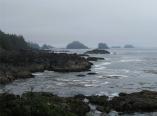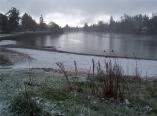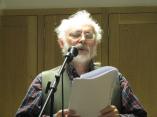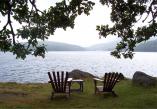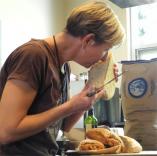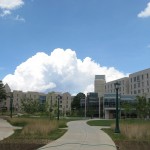 Every so often I end up temporarily on a new university campus, struggling to locate oddly-situated and randomly-numbered rooms in unmarked buildings. While I retrace miles of wasted footsteps, I have ample time to reflect on the importance of signposting and the absence of an inner compass which would allow me to make intended use of the maps and directional notes with which we start these journeys. The friendly young man who checked me into my dorm the other night, one of a clutch of sustainable buildings named for trees (by his hand mine was spelled ceader) told me that I’d find most of the ASLE sessions by following a sort of path alo
Every so often I end up temporarily on a new university campus, struggling to locate oddly-situated and randomly-numbered rooms in unmarked buildings. While I retrace miles of wasted footsteps, I have ample time to reflect on the importance of signposting and the absence of an inner compass which would allow me to make intended use of the maps and directional notes with which we start these journeys. The friendly young man who checked me into my dorm the other night, one of a clutch of sustainable buildings named for trees (by his hand mine was spelled ceader) told me that I’d find most of the ASLE sessions by following a sort of path alo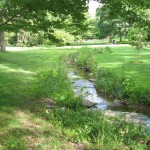 ng a creek – “it’s kind of hard to explain,” he concluded.
ng a creek – “it’s kind of hard to explain,” he concluded.
I did eventually find that elusive path, and the buildings are starting to look more familiar. Somehow I’ve found my way to a few sessions over the past couple of days.
Aquatic Intelligence: A Panel to Explore Relationships with Water has been about the best panel I’ve been to so far (aside from my own, ahem). Gyorgyi Voros started us off with an overview of the watery module in the Earth Sustainability course she taught, and particularly the role of the “Gathering of the waters” exercise, inspired by Basia Irland‘s similarly named 5-year project along the Rio Grande.
Kate Berry then stepped in to say a few words on Basia Irland’s behalf – as she’d had to cancel – about her Waterborne Micro-Pathogens project: she’s created “scrolls” from sari silk (because this is used in India to filter drinking water) with images of some of “the waterborne diseases that kill a child every eight seconds somewhere in the world.” They’re floated in rivers and hung in wells and other appropriate locations.
Berry, a geographer from the U of Nevada, then carried on with her own paper, The Rhetoric of Water Crises and Metrics of Drought, in which she deplored the shoe-horning of the term “crisis” into every contemporary environmental issue we face, and argued that while engagement is needed, crisis is not. Using this rhetoric pits those who acknowledge the crisis against those who don’t; and entangles it in bigger issues, making it something that endlessly changes and therefore becomes fundamentally unsolvable; and it tends to puts us in a position of having to master a crisis rather than adapting to a changing environment. Later a questioner commented on humanity’s search for stasis in a constantly changing world; although it was also agreed there’s a difference between evolving features and imposed/rapid change of the kind that does get labelled “crisis.”
Finally, Jennifer Wheat, from the U of Hawaii, spoke, in part from her own experience, on Never Turn Your Back on the Ocean: Wild Swimming and Eco-Activism, which touched on such aspects as the difficulty of engaging with something you can’t see – water can look clear but carry contaminants that can affect us by ingestion, immersion or accidental contact; she talked about the deliberate, Monsanto-funded poisoning of mangrove swamps that – though not native to Hawaii – do harbour native fish nurseries and protect against tsunamis; and the difficulties of ownership and custody of shared water.
